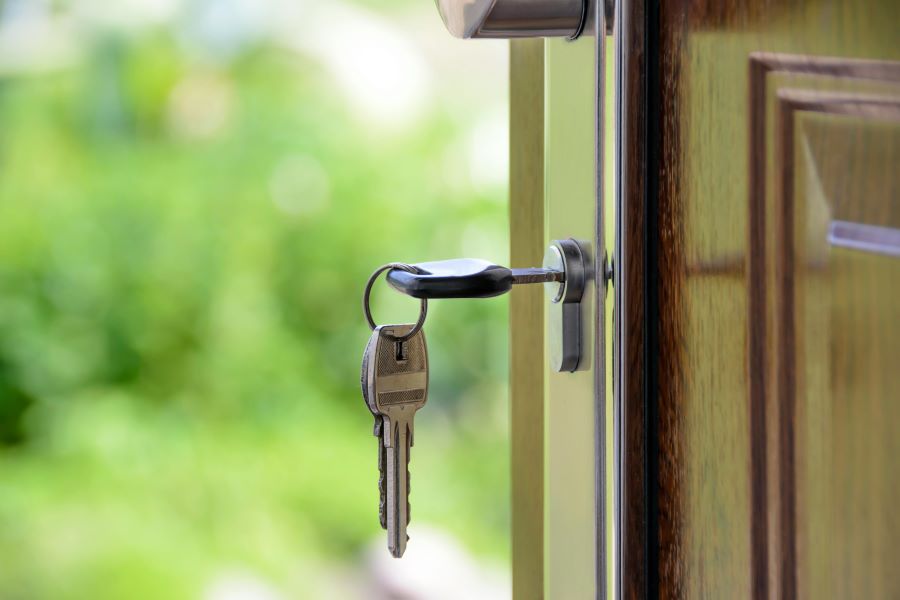Section 8 Housing offers landlords a reliable income stream, low vacancy rates, and a chance to support their community by providing affordable housing.
Florida Condominium Assessments are Skyrocketing. What You Need to Know Now
Florida condominiums are about to get much more expensive to own.
Key Takeaways:
• Florida condominium assessments are increasing due to insurance and operating costs.
• Florida will require extensive inspections of more than three stories tall condominium buildings every ten years. These 10-year inspections will result in higher monthly assessments.
• Reserve accounts resulting from the inspections must be fully funded by 2025.
• Due to this new law, owners may have to pay expensive special assessments or consider selling their units.
• The consequence of not following the new law is exemplified by the collapse of the Surfside Condominiums in 2021, which cost 98 people their lives.
• Someone looking to buy a condo in Florida should look for one with recent inspections and check on the financials of its Association before purchasing due to the payment shock of the upcoming huge increases in Monthly Assessments.
Florida condominiums must have fully funded reserves in 2025.
Whether that’s good or bad news depends on how you view it.
First, Here’s why Florida condos will be much more expensive to own:
A new law will take effect in 2025 that will dramatically impact the costs and future of condominiums in Florida. This new law directly results from the devastating collapse of the Surfside Condominiums on June 24, 2021.
Ninety-eight people died in the collapse of Surfside Condominiums.
The Association was aware of defects in 2018 due to the Florida mandatory 40yr recertification process. The engineer’s report in 2018 identified $9.1 million in necessary repairs.
Two years after the Association received that report, they notified condo owners of their planned $15 million assessment to renovate and repair the building.
Special Assessments
They sent out special assessment notifications that ranged from $80,190 for a one-bedroom condominium unit to $336,135 for the largest unit, a 4-bedroom “penthouse.”
The deadline for payment was July 1, 2021.
The building collapsed, and 98 people died one week before the deadline for payment.
The collapse occurred 3-years after the Condominium Association received the initial report.
As a result of the Surfside Condomium collapse, Florida changed State Law to help prevent similar future condominium disasters.
Underfunded Condominium Reserve Accounts
Other buildings in Florida have significant defects, including deferred maintenance and repairs due to underfunded reserve accounts and owner reluctance to pay higher condo association fees.
Low Monthly Assessments – Don’t Be Misled
Buyers tend to focus on the monthly condo assessments when buying a condominium. Therefore, it’s not uncommon for “low assessments” to show in property listing information.
A listing that shows a low monthly assessment can mislead a prospective purchaser to think a particular condominium unit might be a great deal compared to others with higher estimates.
The only way to know the answer is to review condominium inspection reports, minutes, and financial reports.
Special Assessments Shocked a Friend:
Several years ago, a friend bought a condominium in Clearwater, FL. One month after closing, he learned of an upcoming special assessment.
Had he reviewed the minutes of recent Association meetings, he would have learned of it (and though there were rumors that it was coming, nobody disclosed the rumors to him).
For my friend, it was a costly $120,000 assessment that he had no choice other than paying it.
Low Fees
Low assessments often result from paying the bare minimum to operate the building. Low monthly condo fees could indicate that the condominium association needs additional funding.
All buildings can have defects, both minor and significant.
A search of lawsuits for “construction defects” against the developer, builder, renovator, and their sub-contractors/suppliers can yield exciting results that could be worth even more research into the details.
Same with online reviews. If you see reviews that mention damage, closed amenities, water issues, and other unexpected items in new buildings, then it’s worth investigating further.
Required Inspections Every Ten Years Determine Funding Needs
Under Florida Chapter 718, extensive structural and system inspections are required (not just recommended) every 10yrs.
In the past, the required reviews were every forty years. The 10yr inspections were “recommended (as in Texas)” but not required.
Should You Buy a Florida Condominium (or one in Texas)?
The new inspection rules are good news from a safety and investment protection standpoint and are likely to spread to other areas impacted by coastal and weather issues, including Texas.
Prices for condominiums will likely drop based on costs that show up in the inspection reports.
Values are Likely to Decrease Due To Underfunded Reserves
Many will offset the costs to fully fund the reserves for an individual condominium unit from their purchase price. In addition, condominium units could decrease in value due to defects, plus an additional supply of units available for sale due to rising costs and risks of special assessments.
Values are Likely to Increase After Inspections and Reserve Requirements are Met
Values will likely increase after a building is fixed and updated to modern requirements.
Also, it’s common for developers to purchase (or make offers on) older condominium buildings from the individual owners if the location is excellent (for example, on the beach).
Recent purchases in the Miami area have doubled or even tripled the current market value for the units due to the underlying property’s value.
As those buildings are torn down and replaced by much taller and more expensive condominiums, condo values, in general, should also increase.
The Land Might be Worth Double or Triple What the Building’s Worth
Condominium bylaws will describe the rules for the sale of the condominium building (usually requires a certain percentage of owners to agree).
I’ve owned or financed (as a mortgage lender) many condominiums over the years (in Florida, Texas, Colorado, and California). I see little risk of purchasing one in Florida if you do your homework and understand that the monthly assessments shown might be 2-3x higher over the next few years.
Rules for Buying a Condominium in Florida (and Texas/Colorado)
1) Review condominium association minutes.
2) Review condo budgets and financials.
3) Talk to building residents.
4) Talk to residents in nearby buildings.
5) Talk to residents who are also Board Members.
6) (my personal favorite) Talk to a resident who failed to get on the Board
I’ve learned that the rumor mill can be an excellent place to start, particularly with long-term and older residents.
Condominium Mortgage Lending
The new rules in Florida complicate valuations and down payment requirements, so contact a mortgage lender experienced with condominium financing to receive the most current information.
The process is otherwise similar to financing other types of housing. Satisfactory credit scores and debt-to-income ratios will look familiar.
The condominium project will also be reviewed to determine if it’s warrantable.
Contact Steve Silver at Silver Mortgage, at 1-800-920-5720.
NMLS licenses: #70160 Texas #314817 #360472 Florida #LO91968
For additional contact and licensing information, click here
© 2023 SteveSilverNow





